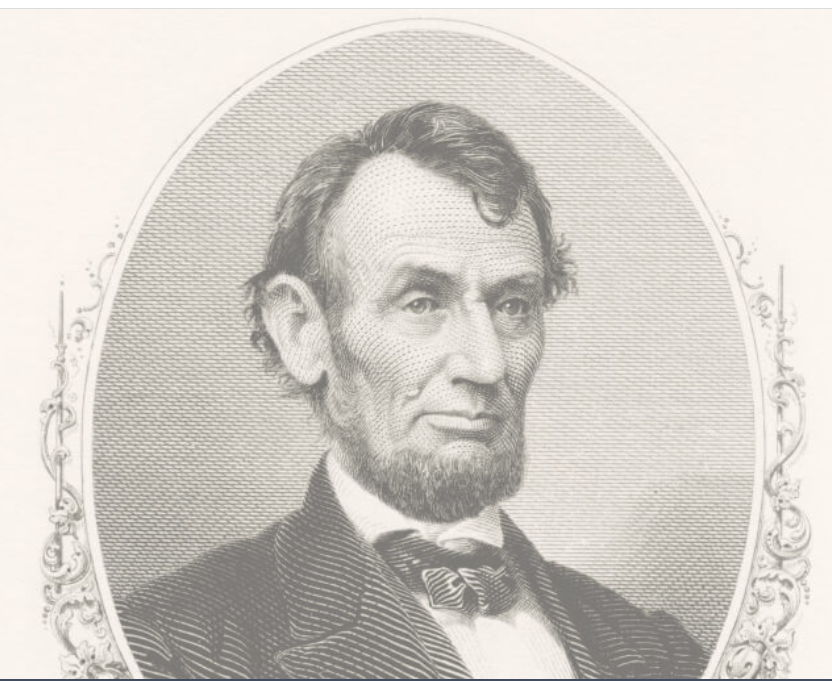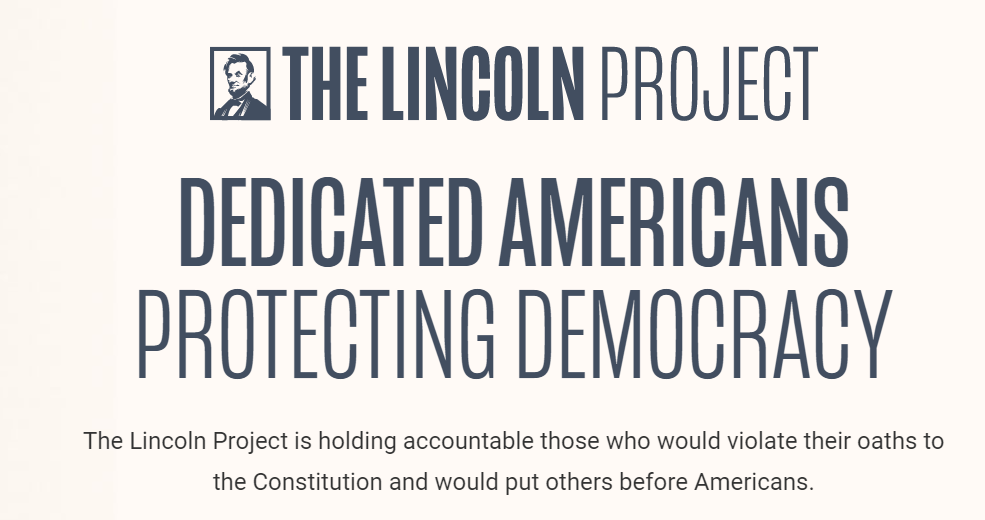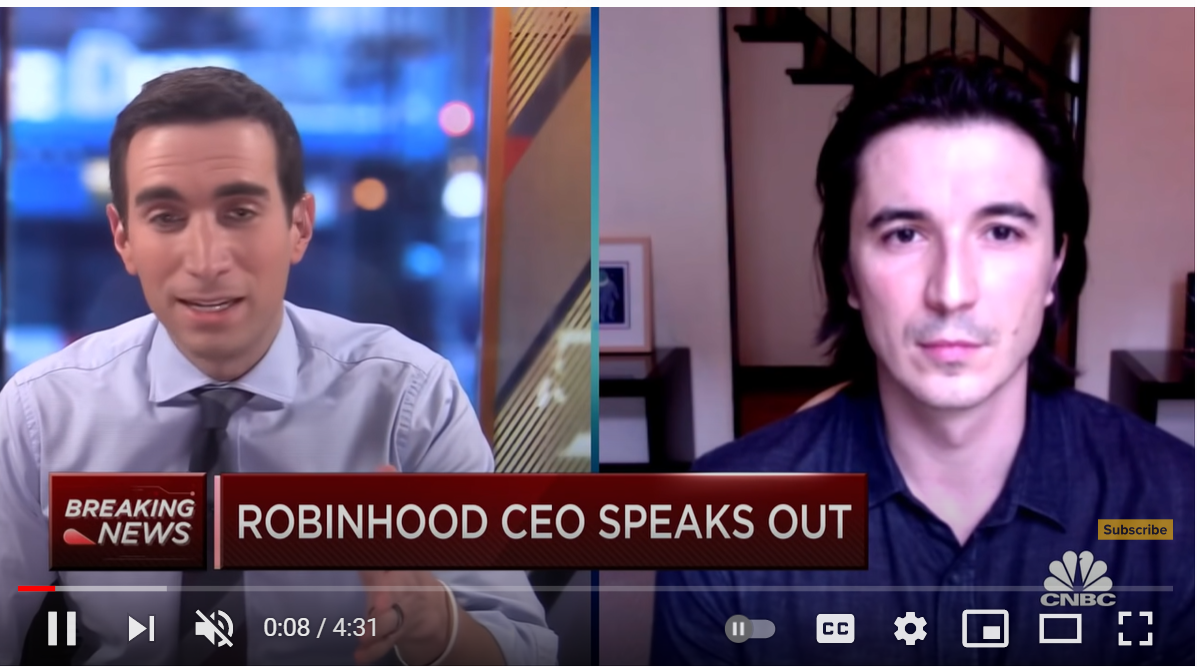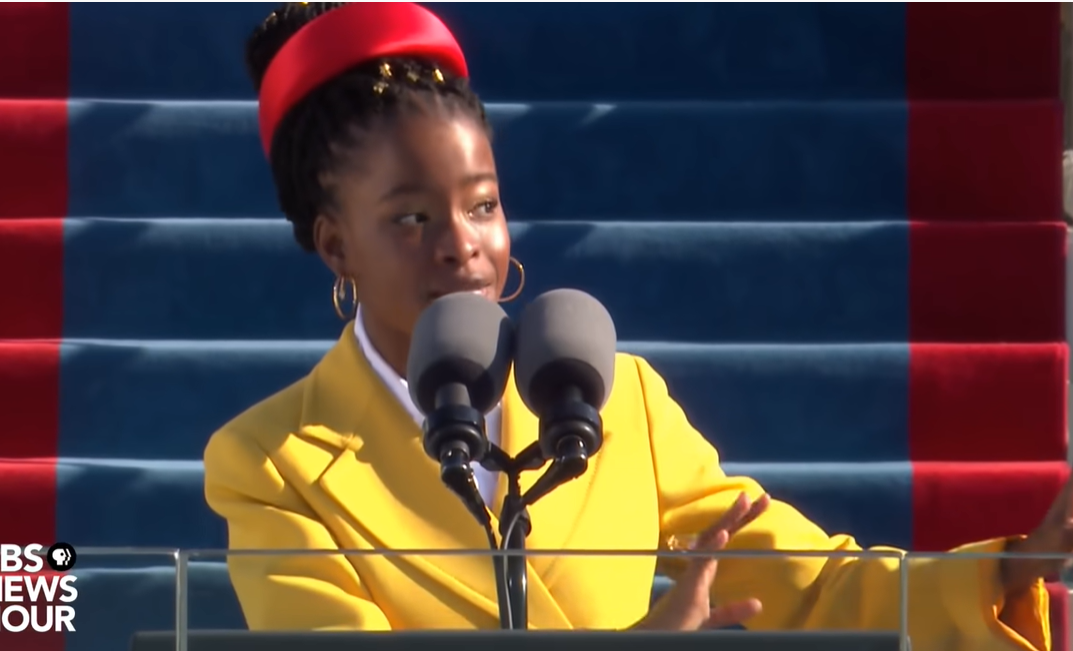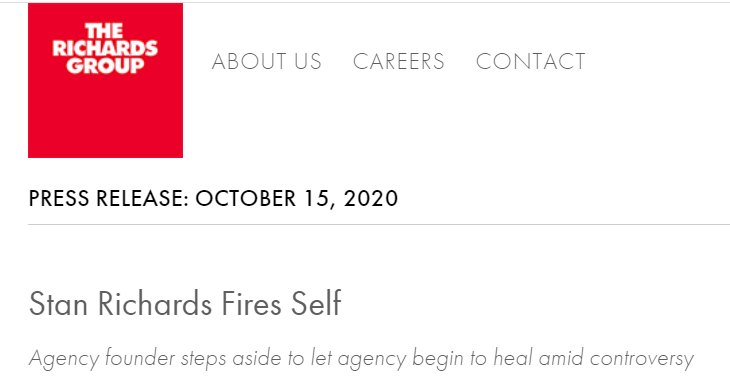Questions Are Different for Women in Economics
A working paper shows that women in economics receive more and tougher questions than do their male counterparts. Researchers analyzed data from 462 presentations at seminars and job talks, when candidates present their research to prospective faculty colleagues.
Controlling for fields, types of seminars, and other factors, the researchers found that women receive 12% more questions and more “hostile” or “patronizing” questions. One concern is that woman might be discouraged from presenting their work or applying for positions, which hurts the field of economics.
The authors note that less than one percent of presenters were Black or Hispanic, so no conclusions could be drawn about how these groups are treated.
The authors acknowledge that these questions may not result from ill intent but may be a result of implicit bias or part of a more systemic male-dominated culture. Sadly, the authors say that some comments are “demoralizing,” and again, they warn of the negative impact on the field:
“Many of us have heard stories of friends and colleagues whose bad experiences in seminars have led them to re-evaluate whether a career in economics is really the best choice for them.”
Lincoln Project Statement
Frank Bruni is right his article, ”When You Don’t Have Trump to Hide Behind: There’s now space for other scandals. Witness the Lincoln Project.” I’ve been missing hearing about improprieties with the shadow of Trump for the past four years. Now trouble at the Lincoln Project, a political group started in 2018 by Republicans to prevent the re-election of the former president, has come to light.
The issue raises questions of integrity. As the organization criticized the former president for his actions, 21 young men accused one founder of sexual harassment, while organization leaders knew of but did nothing about their complaints. In addition, questions linger about whether group leaders misused funds for personal gain.
The one leader accused of “grooming young men online” responded in a statement:
I am so disheartened and sad that I may have brought discomfort to anyone in what I thought at the time were mutually consensual discussions. In living a deeply closeted life, I allowed my pain to cause pain for others. For that I am truly sorry to these men and everyone and for letting so many people down.
The Lincoln Project also issued an official statement. One, dated January 30, isn’t available because of a broken link on the homepage. But another, dated February 14, is below:
The Lincoln Project has retained the law firm of Paul Hastings to investigate allegations of inappropriate behavior by John Weaver as part of a comprehensive review of our operations and culture. The review process is currently underway.
We are committed to creating a positive, diverse, and inclusive workplace environment at The Lincoln Project and inappropriate behavior by anyone associated with the organization will not be tolerated under any circumstances. We have already taken decisive action to address internal concerns. Additionally, we are releasing staff and former staff from the confidentiality provisions in their employment agreements to discuss their workplace environment. Based on the findings of this review we will take all necessary action to correct any issues or deficiencies that are identified.
Concurrently, we are also working with outside counsel and professional consultants to strengthen our corporate governance, finance and operational structure, human resources, and leadership to position The Lincoln Project to further maximize our impact and lean into our important mission advancing democracy.
The Lincoln Project was founded to combat political forces who seek to undermine our democracy. We revolutionized how political action committees operate and spent $81 million last cycle to create and place more than 300 advertisements, host national town halls, conduct voter outreach, and launch a podcast and streaming video network that engaged millions of voters. Eighty percent of our funds went to voter contact and content production. Our historic results speak for themselves.
Moving forward, we have important work ahead of us and we have created a nationwide movement of Americans who support our objectives.
In order to continue fulfilling our promise to our millions of supporters and contributors, we must address any and all internal organizational issues immediately and put in place a governance and diverse leadership structure that reflects our core values and ensures we will continue to attract the best talent available.
The Lincoln Project will continue producing and distributing our popular content and commentary while these reviews are being conducted and we are operating at full capacity.
The statement start is unfortunate and squirrely. Perhaps an apology might be more appropriate? As an apology, if this is the intent, the statement doesn’t work very well. Apologies admit specific wrongdoing, acknowledge the impact, and describe positive steps planning for the future. I don’t see that here.
Tokyo Olympics Head Resigns Over Sexist Comments
Former Japanese Prime Minister and president of the Tokyo Olympics made sexist comments about women and has resigned. This turmoil further complicates the games, which are already delayed because of COVID-19.
Yoshiro Mori said, “On boards with a lot of women, the board meetings take so much time,” “Women are competitive. When someone raises his or her hand and speaks, they probably think they should speak too. That is why they all end up making comments,” and “You have to regulate speaking time to some extent, or else we’ll never be able to finish.”
Several Japanese leaders spoke against Mori, and it’s interesting to compare their statements, particularly from companies that typically avoid public controversy. Few board members called for his resignation, but pressure was too great, including that from about 100 volunteers who quit.
In response to criticism, Mori said, “I didn’t mean it in that way, although it was said to be discrimination against women,” he said. “I have been praising women, promoting them to speak out more.” Mori also spoke of age discrimination. He is 83 years old. He said, “Old people are also doing well for the sake of Japan and the world. I feel extremely unhappy that older people are said to be bad. But it may go nowhere if I complain.”
An ABC writer calls the press conference “hastily prepared.” His apology wasn’t good enough to stave off the criticism, and he was forced to resign.
McKinsey Pays Settlement for Work with Purdue Pharma
Management consulting company McKinsey will pay almost $600 million to settle several lawsuits over its role in the opioid crisis, including offering marketing advice to Purdue Pharma. The largest settlement is for $573 million, which Massachusetts Attorney General Maura Healey describes in a video.
Healey’s presentation and delivery are interesting because she represents families and is speaking for 47 attorneys general in several U.S. states. Her anger is evident, but her audience is small: only 53 views one week after it’s posted, and at least three of those are me. What are the communication objectives? This will make a good class discussion.
McKinsey’s response is also interesting for students studying business communication and character. In an email to staff, Global Managing Partner Kevin Sneader describes “setting a higher standard.” Whereas the governors consider McKinsey’s actions unlawful, Sneader does not agree:
“Indeed, while our past work with opioid manufacturers was lawful and never intended to do harm, we have always held ourselves to a higher bar. We fell short of that bar. We did not adequately acknowledge the epidemic unfolding in our communities or the terrible impact of opioid misuse and addiction, and for that I am deeply sorry.”
The Massachusetts court filing explains the legal argument.
At some point in 2019, two McKinsey executives debated in emails “eliminating all our documents and emails.” These executives have been terminated. (See McKinsey communications.)
Rhetorical Devices in Super Bowl Ads
The Michelob ULTRA Super Bowl commercial demonstrates two rhetorical devices well. One is anaphora: “After the…., “After the…,” “After the…”
Chiasmus is also illustrated by “Are you happy because you win, or do you win because you’re happy?” This is an ABBA construction.
Rhetorical devices can be overused and hokey, but in ads they’re memorable, and these are good examples.
Amazon Announces New CEO
In a news release, Amazon announced that CEO and Founder Jeff Bezos will be stepping down, transitioning to role of Executive Chair of the board. He will be succeeded by Andy Jassy, currently CEO of Amazon Web Services. The change won’t take place until the third quarter of 2021.
The news is announced in two short paragraphs within the company’s fourth quarter results:
Amazon is also announcing today that Jeff Bezos will transition to the role of Executive Chair in the third quarter of 2021 and Andy Jassy will become Chief Executive Officer at that time.
“Amazon is what it is because of invention. We do crazy things together and then make them normal. We pioneered customer reviews, 1-Click, personalized recommendations, Prime’s insanely-fast shipping, Just Walk Out shopping, the Climate Pledge, Kindle, Alexa, marketplace, infrastructure cloud computing, Career Choice, and much more,” said Jeff Bezos, Amazon founder and CEO. “If you do it right, a few years after a surprising invention, the new thing has become normal. People yawn. That yawn is the greatest compliment an inventor can receive. When you look at our financial results, what you’re actually seeing are the long-run cumulative results of invention. Right now I see Amazon at its most inventive ever, making it an optimal time for this transition.”
In a longer message to employees, Bezos writes in the same conversational style, but he is more inspirational. The email is also posted on the Amazon public site.
The change is big news and garnered the lead Wall Street Journal story today with the headline, “Amazon CEO Change to Come Amid Regulatory Scrutiny.” The article cites Amazon’s 44% profit increase in the fourth quarter of 2000 as well as the challenges ahead:
“But Amazon also faces the biggest regulatory challenges in its history, with multiple federal investigations into its competitive practices and lawmakers drafting legislation that could force Amazon to restructure its business. Tension with regulators and lawmakers has directly embroiled Mr. Bezos, who was called to testify in front of Congress last summer for the first time.”
Bezos also was in the news recently because his ex-wife, MacKenzie Scott, donated $5.9 billion in the past year. A New York Times article contrasts her philanthropy with criticism about Bezos’s extraordinary wealth and lack of attention to environmental issues and employees’ concerns. A Vanity Fair author writes, “She got even [for his having a public affair] by doing what he does not: sharing his unbelievable, unconscionable, indescribable wealth with those he makes his money off of, i.e. everyone else in the world.”
Robinhood CEO Defends Decision to Block Trading
It’s been a wild week of investing in GameStop, AMC, and other companies, with amateur investors driving up prices. Investment app Robinhood decided to halt trading and was highly criticized. Robinhood was accused of not having enough liquidity to cover trades, succumbing to pressure from hedge funds, and trying to protect investors, yet interfering with their trading decisions and opportunities to gain high returns.
In a CNBC interview with Andrew Ross Sorkin, CEO Vlad Tenev defends the company’s decision to block trading. He denies the accusations but does mention the liquidity and responsibility. How clear is his explanation?
His video is a good one to analyze for his delivery skills and appearance. His skin and wall colors are rather pink, and although he sounds confident, he could move his upper body more to seem relaxed. Fillers signal a conversational style, which is appropriate here, but he overuses “um,” and I find it distracting.
GM CEO's Letters to Environmental Leaders
General Motors has changed its position on climate change. The company, led by CEO Mary Barra, had supported President Trump’s efforts to eliminate California’s ability to set its own strict environmental standards.
With a new incoming president, Barra communicated that the auto industry will likely support President Biden’s environmental policies. The news came in the form of a letter to environmental leaders and encouraged “customer adoption of electric vehicles.” Barra also touted GM’s ability to meet the demand. She ends on a positive note: “This effort is critical to addressing climate change, and we look forward to working together.”
A New York Times writer calls the move a “maneuvering” and “a public humiliation to Mr. Trump” since he was still in office at the time. A public policy professor noted, “This is about as bold as it gets. This huge pivot, so closely following an election result, particularly from a firm like General Motors, is a big, big deal.”
Rhetorical Devices and More in Amanda Gorman's Inaugural Poem
Amanda Gorman, a highly accomplished young poet, gave a riveting presentation at President Joe Biden’s inauguration ceremony. Her precise, engaging delivery—gestures, eye contact, pacing, modulation, etc.—is a lesson for communication students planning business presentations.
The poem demonstrates an extraordinary number of rhetorical devices: alliteration, assonance, anaphora, metaphors, allusions, and more. Whether or not you agree with her remarks in “The Hill We Climb,” the poem has all the marks of a speech that engages the audience and brings them along on a journey.
Disneyland Announces "Sunsetting" of Annual Pass Program
With economic uncertainty during the COVID-19 pandemic, Disneyland remains closed, and the company announced the end of its annual pass program. The 40-year-old program offered unlimited park visits, exclusive discounts, and other benefits.
Disney’s statement explains the reasons and offers customers ways to get a refund for existing passes. In the segment below and another for Premier Passholders, the writers use “sunsetting” three times. The euphemism is a curious choice, and I wonder why “ending” isn’t used instead. Perhaps “cancelling” sounds too harsh?
“Sunsetting” indicates phasing out, and some passholders can enjoy discounts for a limited time. But the program is clearly ending. Dictionary.com refers to a “sunset clause,” and a tech site provides this definition: “Sunsetting, in a business context, is intentionally phasing something out or terminating it.” Both have legal undertones and, in my view, should be avoided for a consumer audience.
Twitter Announces Ban of President Trump
Two days after the riots on the U.S. Capitol, Twitter announced a “permanent suspension” of President Trump’s account after a temporary suspension.
Comparing Twitter and Facebook’s message, on January 7, about a temporary suspension, is a lesson in writing structure. Whereas Mark Zuckerberg used the indirect organizational plan, Twitter’s message states the news right up front. Zuckerberg starts with the rationale and announces the decision at the very end. Twitter starts with the decision, and then provides explanatory text, including sample tweets and the company’s assessment.
Another difference between these messages is the writer. The Twitter post is unsigned, whereas Zuckerberg signed the Facebook message himself. Additional rationale for the decision is posted on the Facebook site. Both approaches could work, and analyzing the communication is (almost) as interesting as the decisions themselves.
Random note: “Permanent suspension” sounds odd to me. A suspension is something temporary.
Company
Permanent suspension of @realDonaldTrump
By Twitter Inc.Friday, 8 January 2021
After close review of recent Tweets from the @realDonaldTrump account and the context around them — specifically how they are being received and interpreted on and off Twitter — we have permanently suspended the account due to the risk of further incitement of violence.
In the context of horrific events this week, we made it clear on Wednesday that additional violations of the Twitter Rules would potentially result in this very course of action. Our public interest framework exists to enable the public to hear from elected officials and world leaders directly. It is built on a principle that the people have a right to hold power to account in the open.
However, we made it clear going back years that these accounts are not above our rules entirely and cannot use Twitter to incite violence, among other things. We will continue to be transparent around our policies and their enforcement.
The below is a comprehensive analysis of our policy enforcement approach in this case.
Overview
On January 8, 2021, President Donald J. Trump Tweeted:
“The 75,000,000 great American Patriots who voted for me, AMERICA FIRST, and MAKE AMERICA GREAT AGAIN, will have a GIANT VOICE long into the future. They will not be disrespected or treated unfairly in any way, shape or form!!!”
Shortly thereafter, the President Tweeted:
“To all of those who have asked, I will not be going to the Inauguration on January 20th.”
Due to the ongoing tensions in the United States, and an uptick in the global conversation in regards to the people who violently stormed the Capitol on January 6, 2021, these two Tweets must be read in the context of broader events in the country and the ways in which the President’s statements can be mobilized by different audiences, including to incite violence, as well as in the context of the pattern of behavior from this account in recent weeks. After assessing the language in these Tweets against our Glorification of Violence policy, we have determined that these Tweets are in violation of the Glorification of Violence Policy and the user @realDonaldTrump should be immediately permanently suspended from the service.
Assessment
We assessed the two Tweets referenced above under our Glorification of Violence policy, which aims to prevent the glorification of violence that could inspire others to replicate violent acts and determined that they were highly likely to encourage and inspire people to replicate the criminal acts that took place at the U.S. Capitol on January 6, 2021.
This determination is based on a number of factors, including:
President Trump’s statement that he will not be attending the Inauguration is being received by a number of his supporters as further confirmation that the election was not legitimate and is seen as him disavowing his previous claim made via two Tweets (1, 2) by his Deputy Chief of Staff, Dan Scavino, that there would be an “orderly transition” on January 20th.
The second Tweet may also serve as encouragement to those potentially considering violent acts that the Inauguration would be a “safe” target, as he will not be attending.
The use of the words “American Patriots” to describe some of his supporters is also being interpreted as support for those committing violent acts at the US Capitol.
The mention of his supporters having a “GIANT VOICE long into the future” and that “They will not be disrespected or treated unfairly in any way, shape or form!!!” is being interpreted as further indication that President Trump does not plan to facilitate an “orderly transition” and instead that he plans to continue to support, empower, and shield those who believe he won the election.
Plans for future armed protests have already begun proliferating on and off-Twitter, including a proposed secondary attack on the US Capitol and state capitol buildings on January 17, 2021.
As such, our determination is that the two Tweets above are likely to inspire others to replicate the violent acts that took place on January 6, 2021, and that there are multiple indicators that they are being received and understood as encouragement to do so.
University Assistant Coach Fired Over Disparaging Comments
Assistant coach of the Mocs football program at University of Tennessee at Chattanooga has been fired. Chris Malone posted a disparaging, racist, and sexist tweet about Stacey Abrams, who is credited for gaining democratic votes in the tight Georgia political races.
University Chancellor Steven Angel posted a video to explain the decision. He covers the basics of an apology but deserves credit for using video as a medium in addition to the athletics director’s and head coach’s written statements:
Mark Wharton – UTC Vice Chancellor & Directory of Athletics
"Last night, a totally inappropriate social media post by a member of our football staff was brought to my attention. The entire post was appalling. The sentiments in that post do not represent the values of our football program, our Athletics department or our University. With that said, effectively immediately, that individual is no longer a part of the program."
Rusty Wright – UTC Head Football Coach
"Our football program has a clear set of standards. Those standards include respecting others. It is a message our players hear daily. It is a standard I will not waver on. What was posted on social media by a member of my staff is unacceptable and not any part of what I stand for or what Chattanooga Football stands for. Life is bigger than football and as leaders of young men, we have to set that example, first and foremost. With that said, effectively immediately, that individual is no longer a part of my staff."
Comparing the three statements demonstrates what each leader focuses on and, perhaps, their emotional reactions to Malone’s post. This situation illustrates accountability and integrity, but I might want to see more authenticity and vulnerability. Do we know more about these leaders as a result of this situation?
Zuckerberg's Message About President Trump's Account
Facebook has decided that President Trump will no longer use its platform for his messages—at least for a while. The decision came after riots at the U.S. Capitol and after Twitter and Facebook suspended the president’s account. The tech companies said that the president violated its rules by inciting violence and/or making false claims about the election.
YouTube blocked a video of President Trump expressing sympathy for the protestors and calling them “special.” The tech platforms had tried labeling posts, but the president’s false claims were still believed.
Some call this time an “inflection point": “Hey Mark Zuckerberg, @jack, @SusanWojcicki and @sundarpichai -- Donald Trump just incited a violent attack on American democracy. Is that FINALLY enough for you to act?!" At this point, Twitter has not yet permanently banned the president from tweeting.
Zuckerberg uses the indirect style for his post, with the main point in the very last sentence. He makes his argument first, and then we read the decision. It’s an interesting choice, which might not convey the courage that people would like to see.
Additional analysis and rationale for the decision are posted on the Facebook site.
CEOs Respond to Capitol Riots
Several business executives are speaking out after riots at the U.S. Capitol. Rioters stormed the building as Congress was certifying (and debating) Joe Biden as the next president. President Trump ignited the crowd by claiming, without evidence, that he won the election “by a landslide” and that it was “stolen” from him.
CEOs have been joining political conversations in the past several years, and today is another example. One of the most significant is Blackstone CEO Stephen Schwartzman, a Trump supporter and loyalist. He said, “The insurrection that followed the president’s remarks today is appalling and an affront to the democratic values we hold dear as Americans” and “There must be a peaceful transition of power.”
Bank of America CEO Brian Moynihan tweeted his view of the riots, and other leaders represented Salesorce, JPMorgan Chase, BlackRock, Google, Apple, and many more.
Political conservatives also weighed in, for example, Jay Timmons, president and chief executive of the National Association of Manufacturers. Timmons suggested that Vice President Pence invoke the 25th amendment, meaning President Trump would be removed from office:
“This is not the vision of America that manufacturers believe in and work so hard to defend. Across America today, millions of manufacturing workers are helping our nation fight the deadly pandemic that has already taken hundreds of thousands of lives. We are trying to rebuild an economy and save and rebuild lives. But none of that will matter if our leaders refuse to fend off this attack on America and our democracy.”
Workers Want to Stay Home
Employees aren’t anxious to return to an office, which may forever change communication. Studies show that, since the pandemic, 61% of people would prefer to work from home full time, compared to 27% before the pandemic. Also, although about 32% didn’t want to work from home at all before the pandemic, 4% now have the same sentiment.
Employees report positive results from working from home, including greater efficiency. Although many have been challenged with children at work, overall, the unintended experiment has been successful.
Because more people will work from home, at least part time, teams need to be better collaborators, and managers need to be better managers. We have relied too heavily on simplistic measures, such as time spent in the office, with no better measures of accountability, output, and impact.
Leaders will need to find ways to keep employees connected to their organizations and to each other. Many employees are feeling “Zoomed out,” but we’ll need ways to socialize and build informal connections that help develop trust and make work easier to manage.
Phrases of 2020
Research firm Sentieo scoured investor calls to identify increases in certain phrases. The following represents the number of transcripts in which the word or phrase was used—not the number of times they appeared.
“Unprecedented times” was the phrase that increased the most from the previous year: 2,218 this year compared to only 3 last year. The second highest increase was “work from home.” Others were “furlough,” “challenging,” “technical difficulties,” “new normal,” and of course, “you’re on mute.”
This study reminds me of a farcical YouTube video, “Every Covid-19 Commercial Is Exactly the Same.” Both are good lessons in overused words that quickly become tiresome to hear. Let’s try to be more original in 2021.
Companies Leave Ad Agency Over Founder's Remarks
Several companies dropped ad agency Richards Group after the founder referred to a proposed Motel 6 ad as “too Black.” Stan Richards, the firm’s 87-year-old, white founder, also said the ad might alienate the chain’s “white supremacist constituents.” Although the agency created Motel 6’s slogan, “We’ll leave the lights on for you,” the company—along with Cracker Barrel, Home Depot and Keurig Dr Pepper—have ended the relationship. Another customer, The Salvation Army, said it were “deeply concerned” but “encouraged by the fact that Mr. Richards has made an apology.”
The founder made the comments during a Zoom meeting with more than 36 employees and referred to an ad with Black, latinx, and white motel guests. Richards apologized on another Zoom call, and he has been replaced as CEO by Glenn Dady, his planned successor. The company issued a statement on its website, including this quote from Richards:
“If this was a publicly held company, I’d be fired for the comments I made. But we’re not public, so I am firing myself. Our employees, first and foremost, deserve that.”
United Airlines’ Response to Passenger Death
United Airlines is doing damage control after a passenger flying from Orlando to Los Angeles was rushed to a hospital in New Orleans and died. The cause of death hasn’t yet been reported, but the airline confirmed that the passenger had Covid-19 symptoms.
Customer response is fierce, partly because the passenger’s wife told others that her husband had Covid, and partly because the airline continued to fly the plane with passengers. Like most airlines, United asks passengers about their symptoms before flying, but they do not verify.
Communications are scant. I see nothing on United’s home page but found a news release dated December 16, two days after the passenger death, titled, “United and CDC Work Together on Contact Tracing Initiative for All International and Domestic Flights.” Recent tweets mention nothing about the situation, although one conveys the same message as the news release: “comprehensive, voluntary contract tracing.”
Some might feel that this is the least the airline can do in the situation.
Robinhood's Misleading Communications
Investment app Robinhood will pay $65 million in fines for misleading customers. The 2013 start-up has grown rapidly, attracting younger, inexperienced investors with no-fee accounts and no minimums. But Robinhood generates revenue through “payment for order flow,” essentially a kickback from Wall Street firms and the same practice Bernie Madoff used to defraud investors.
Robinhood uses behavioral nudges and notifications to push users to invest in riskier stocks, resulting in higher trading volume, sometimes dramatic losses—and more revenue for the company. An NBC article describes the visuals:
When smartphone owners pull up Robinhood’s investment app, they’re greeted with a variety of dazzling touches: bursts of confetti to celebrate transactions, the price of bitcoin in neon pink and a list of popular stocks to trade.
Charles Schwab, meet Candy Crush.
A competitor compared the design to Las Vegas.
Of course, all is well when stocks go up, but when stocks decline, users have to make up the loss. For one 20-year-old man, his bill appeared to be $730,000, and he committed suicide.
Trader Joe's Criticized for "Racist Packaging"
A 17-year-old started a petition to encourage Trader Joe’s to “Remove Racist Packaging From Your Products.” Briones Bedell explains her perspective:
The grocery chain labels some of its ethnic foods with modifications of “Joe” that belies a narrative of exoticism that perpetuates harmful stereotypes. For example, “Trader Ming’s” is used to brand the chain’s Chinese food, “Arabian Joe” brands Middle Eastern foods, “Trader José” brands Mexican foods, “Trader Giotto’s” is for Italian food, and “Trader Joe San” brands their Japanese cuisine.
She received 5,956 signatures and was aiming for 7,500.
The company responded in a series of statements, including this one:
We want to be clear: we disagree that any of these labels are racist. We do not make decisions based on petitions.
In addition, the LA Times reported, “More than 80 of the 100-plus readers who responded to The Times’ call for opinions said the labels would not change their feelings about Trader Joe’s or its product.”
Bedell claims that her petition was a success and cites this NY Times article with a quote from a company spokesperson: “Labels such as Arabian Joe’s and Armenian Joe’s were no longer in use, and that the label Trader Joe San is currently used on only about three products.” Bedell’s latest post is titled, “Trader Joe’s Discontinues ‘Arabian Joe’ and ‘Armenian Joe’ Labels.” The NY Times article explains, “The supermarket chain said it was in the process of phasing out names, including Trader Ming’s and Trader José, that have appeared on its international food products.”
Discussion:
What’s your view of the labels: racist, fun, or something else?
Read Bedell’s post, Trader Joe’s statements, and the NY Times article. Can she claim credit for a decision?
How do you assess Trader Joe’s response, particularly the statements on its website? What, if anything, should the company have done differently?


